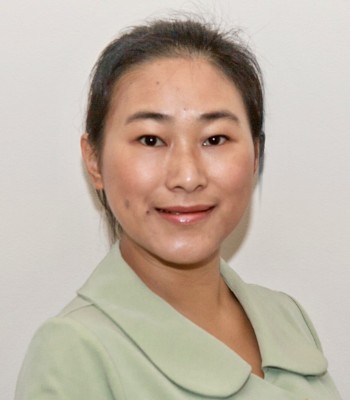
Qiong Zhao, PhD
Dr. Qiong Zhao received her PhD degree in Microbiology and Biochemical Pharmacology from Peking Union Medical College and Chinese Academy of Medical Sciences, Beijing, China in 2014. After that, Dr. Zhao joined Dr. Ju-tao Guo’s lab as a postdoctoral fellow and started her research on Hepatitis B virus. During 2014 to 2017, she set out to understand the role of phosphorylation at C-terminal of HBV core protein in HBV life cycle, particularly how it affects viral capsid assembly and pregenomic RNA(pgRNA) encapsidation. For the first time, she defined the phosphorylation status of HBV core protein at different steps during capsid assembly, and revealed the essential role of HBV core protein dephosphorylation in pgRNA packaging/nucleocapsid assembly, which provided a definitive answer for a long-lasting question in the field of HBV research. Collaborating with her colleagues, Dr. Zhao also revealed the dual antiviral mechanisms of core protein allosteric modulators (CpAMs), i.e., disruption of nucleocapsid assembly and induction of disassembly of mature nucleocapsids.
In 2019, Dr. Zhao returned to Dr. Ju-tao Guo’s lab and shifted her research focus to transcriptional regulation of the HBV covalently closed circular (ccc) DNA. Since then, she has established a pgRNA launch HBV replication system in human hepatoma cells, which provides an optimal system for understanding transcriptional mechanism of cccDNA derived from intracellular amplification pathway without interference from input plasmid DNA or integrated viral genome. Furthermore, she demonstrated the system is robust for precisely mapping the viral replication steps by antivirals and dissecting the molecular mechanism of cccDNA transcriptional activation by HBx protein.
Dr. Zhao has developed and optimized several cell culture systems for the exploration for transcriptional regulation of cccDNA from both de novo infection and intracellular amplification pathway. Also, she has established a series of experimental methods to study cccDNA minichromosomal structure and identify binding proteins or epigenetic markers, and already accumulated many exciting data on cccDNA transcription regulated by IFN or HBx.
Research Interests
cccDNA transcriptional regulation, particularly by HBx and IFN-a; regulatory mechanism on transcription of cccDNA derived from de novo infection and intracellular amplification; HBV DNA integration.
Google Scholar Link:
https://scholar.google.com/citations?user=6grnjooAAAAJ&hl=en
NIH bibliography Link:
https://www.ncbi.nlm.nih.gov/myncbi/1TmcW4-53csgYb/bibliography/public/
← Back to Principal Investigators